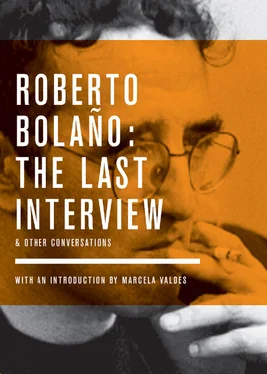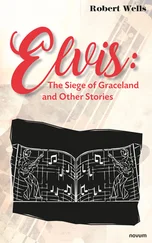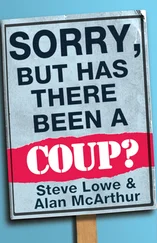Those who’ve sampled Bolaño’s other fictions will recognize the cool detachment of this passage. But the level of grisly detail is like nothing in any of Bolaño’s previous works — or in any of the newspaper accounts he could have read. His descriptions of the murder investigations, and of the incidents surrounding the trial of the chief suspect, are equally precise and uncanny.
How did Bolaño become so intimate with the details of these crimes, and the procedures of the local police, when he lived an ocean away? His other investigative novels were written after the fresh blood of history had dried; even then, Bolaño had always drawn from firsthand knowledge of the events or from that of his friends. Yet at the time he was writing “The Part About the Crimes,” information about the murders in Juárez was quite restricted. To pull off this kind of hyperrealism, he must have had the help of someone on the inside, someone whose interest in autopsy was as relentless as his own.
THE PART ABOUT THE JOURNALIST
In the summer of 1995, the year Bolaño wrote to Carla Rippey, the bodies of several young women were discovered semi-nude and strangled just south of Juárez, near the local airport. That September the city offered a $1,000 reward for information about The Predator. A month later, police arrested Abdel Latif Sharif Sharif, an Arab-American with a history of sexual aggression, and charged him with the five murders, plus a few others committed in September. But two months later, while Sharif Sharif awaited trial in prison, fresh corpses began to appear. The police maintained that Sharif Sharif, a chemist, had directed these murders from his cell, paying $1,200 for each woman killed. His accomplices, they said, were eight teenage boys they arrested in a sweep of nightclubs. They were called The Rebels.
Almost 1,000 miles away, in Mexico City, this news fascinated a reporter named Sergio González Rodríguez. A novelist and arts journalist, González Rodríguez had launched his career during the 1980s by doing reviews for Carlos Monsiváis, a leading cultural critic and a pioneer of the nueva crónica, or New Journalism, style in Mexico. By the time the newspaper Reforma came calling in 1993, González Rodríguez was well known as a centrist critic who wasn’t afraid of riling the government: he’d been fired from the magazine Nexos for publishing an article in Reforma that questioned the ethics of intellectuals who allied themselves with then-President Carlos Salinas de Gortari, who’d been elected in 1988 amid widespread allegations of voter fraud. This independent temperament made González Rodríguez a good match for Reforma— the paper had a history of serious investigative reporting — and he was hired to edit one of the paper’s weekend cultural supplements, “El Ángel.” (These days González Rodríguez still serves as the section’s editorial consultant. He also writes three regular columns for the paper.)
The news from Juárez reminded González Rodríguez of the movie Silence of the Lambs , which he’d seen a few years earlier. Could it be, he wondered, that Ciudad Juárez held a real Hannibal Lecter? Answering that question wasn’t part of his regular beat, but as he explained to me in a series of interviews, he’d always been interested in literature about violence. His favorite books include Truman Capote’s In Cold Blood , Norman Mailer’s The Executioner’s Song and Hans Magnus Enzensberger’s Politics and Crime . He already had plans to travel to the state of Chihuahua to teach a seminar. It wasn’t hard to persuade Reforma to pay for a jumper flight from there to Juárez so he could report on a press conference that the chief suspect planned to hold, in prison, on April 19, 1996.
That day González Rodríguez watched a tall, middle-aged man with green eyes talk to some thirty reporters. Sharif Sharif barely spoke Spanish — he’d lived in Mexico for less than a year — so he gave his presentation in English while a bilingual reporter translated. What he said sounded like a soap opera. According to Sharif Sharif, the femicides were being committed by a pair of rich Mexican cousins, one who lived in Juárez and the other just over the border in El Paso. He told a love story involving one of the cousins and a poor, beautiful girl from Juárez. The press corps was annoyed — they exchanged glances, cracked jokes. González Rodríguez felt pretty skeptical himself, but the critic in him was intrigued by Sharif Sharif’s style. Rather than pound his chest and declare his innocence, the suspect calmly recounted his ninety-minute tale. He seemed to believe that if he provided an alternate explanation for the murders, the charges against him would be dropped.
At the end of the session, González Rodríguez introduced himself to a local reporter. In a park near the prison, the two chatted about the strange presentation. A mother and her daughter approached them.
Are you journalists? the mother asked.
Yes, they answered.
Then we want to tell you something we think that you should know.
The fourteen-year-old girl beside her wore a T-shirt, jeans and sneakers. She told the reporters that the Juárez chief of police had forced her to accuse The Rebels. The chief, she said, had taken her by the hair and banged her against a wall until she agreed to say exactly what he told her.
For González Rodríguez, perspective suddenly shifted. Old facts (the nightclub sweep, the escalating charges against Sharif Sharif) glittered in a new light: the police were beating witnesses. “This,” he thought, “is the undercurrent.” Later, he learned that while Sharif Sharif had been holding forth in prison, the State Commission on Human Rights had announced that six of the eight witnesses against The Rebels had been detained illegally by the Juárez police.
González Rodríguez flew back to Mexico City and published an article about his findings and the suspicious treatment of the witnesses. Soon after, Reforma asked him to join a special investigations unit devoted to the situation in Juárez. The head of the unit, Rossana Fuentes Berain, sent a journalist undercover into the factories where many of the murder victims had worked; she assigned other reporters to track the details of individual police investigations. González Rodríguez was given the task of studying the big picture for patterns and motivations. Though Berain edited González Rodríguez like any other reporter — sometimes demanding that he corroborate sources or provide additional proofs for his more damning assessments — she also allowed him considerable interpretive leeway.
For three years he traveled back and forth between Juárez and Mexico City, juggling book and film reviews with criminal investigation, until, in the summer of 1999, his reporting began to suggest that the policemen, government officials and drug traffickers of Juárez were all connected to one another, and to the femicides. An attack on the son of Sharif Sharif’s lawyer earlier that year had hardened his suspicions. Why would someone attack a lawyer’s son if the justice system was functioning properly? he wondered. Then, on June 12, together with a reporter from the El Paso Times , González Rodríguez interviewed a prisoner who implicated local police and a prominent senator in the femicides.
In his book Huesos en el desierto , González Rodríguez recounts that three days later he was kidnapped and assaulted by two men in Mexico City. He had hailed a taxi in the posh neighborhood of Condesa, heading home after a late night. The taxi drove for a while and then stopped. Two armed men jumped aboard. They ordered González Rodríguez to close his eyes and sit between them in the back seat. The taxi took off — the driver was complicit. Though González Rodríguez didn’t resist his captors, the men cursed him, punched him, pistol-whipped him and pierced his legs with an ice pick. They would kill him in a deserted spot south of the capital, they said. The taxi stopped again. One of the men got out, and another, whom they called The Boss, sat down. The beatings and threats of rape and death resumed. A patrol car passed nearby with its flashers on. The men dumped González Rodríguez on the street. He filed a police report and went to see a doctor, who prescribed painkillers and bed rest. On June 18, his article “Police Are Fingered as Accomplices [in Juárez]” appeared in Reforma .
Читать дальше












